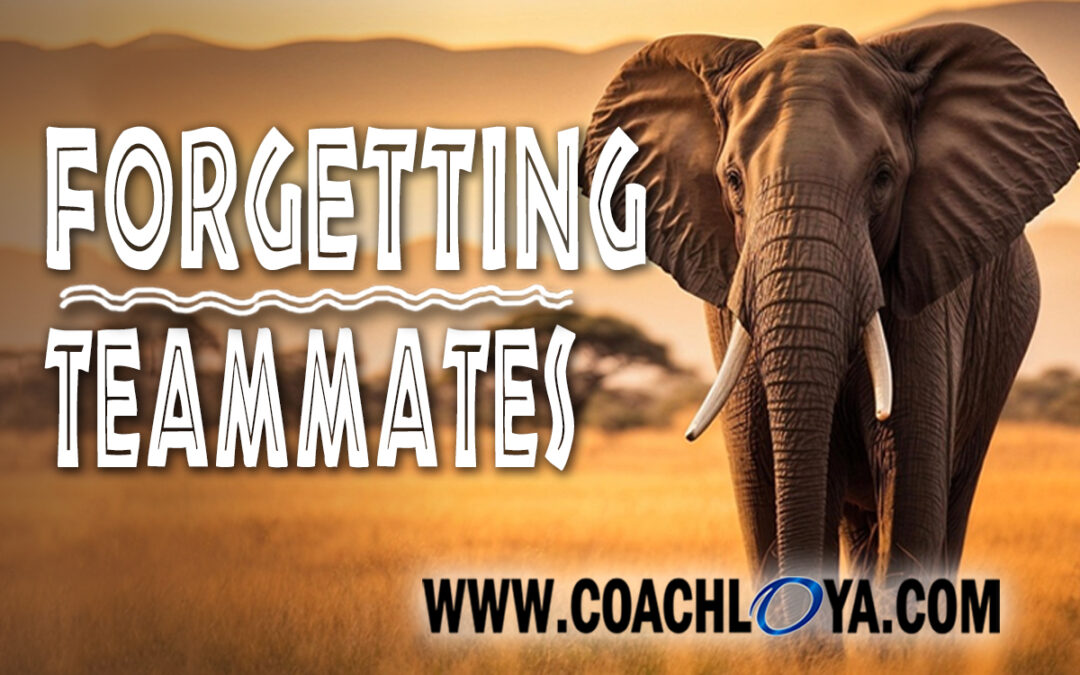Elephants are known for having exceptional memories. But the expression an “elephant never forgets” isn’t entirely accurate. Yes, the world’s largest land animals have a remarkable ability to remember details that are key to their survival, like the sounds and smells of predators, locations of distant watering holes, and faces they encountered decades prior.
But elephants are also known for having exceptional social skills, making them some of the best teammates in the animal kingdom. Included in their social skills is the ability to forget other herd members’ transgressions.
Two weeks ago, I wrote about the importance of remembering teammates who impacted your life (Nana’s Gift). Don’t be misled by this week’s title, because the subject is not about forgetting cherished teammates; it’s about cherishing teammates who forget.
This week’s subject falls into the (blank) teammates category, in the same spirit as Sandpaper Teammates, Ketchup Teammates, and Icarus Teammates.
When I was younger, I used to laugh at older relatives who habitually forgot where they left their glasses or why they walked into a room. The older I get, the less funny those moments seem.
Perhaps relatedly, the more I study the art of being a good teammate, the more I tend to view the habit of forgetting as a virtue, especially when it comes to gratitude, guilt, and grudges.
Gratitude
Good teammates don’t keep score. Although always grateful for favors done for them, good teammates forget about the favors they’ve done for others.
They can do so because they did those favors from the goodness of their hearts and for the good of their teams. They didn’t do them to accrue leverage or with the expectation of those favors being returned.
Guilt
Good teammates don’t obsess over blame. Accountability matters to them, but not more so than solving the problem. When something goes wrong, the first response for many is to focus on assigning blame. The better response is to address the problem and make necessary corrections.
Good teammates realize that not every mistake is born of ill-intent or negligence. By forgetting about who’s to blame in these circumstances, they reduce unnecessary drama, prevent the disruption of defensiveness, and allow their teams to move forward.
Grudges
Good teammates forget hurtful things said or done to them. They don’t allow their hurt to turn into anger, resentment, or bitterness because they know these unhealthy responses can hinder growth.
Good teammates also understand that sometimes hurtful things are said or done in the heat of the moment. Holding onto the hurt of those things is akin to holding onto a hot coal. Eventually, the one holding onto the coal is the one who gets burned.
Much like elephants, good teammates use their memories to help their teams survive. But they use their ability to forget to help their teams thrive. To them, forgetting becomes forgiving—which facilitates progress, togetherness, and healing.
As always…Good teammates care. Good teammates share. Good teammates listen. Go be a good teammate.





